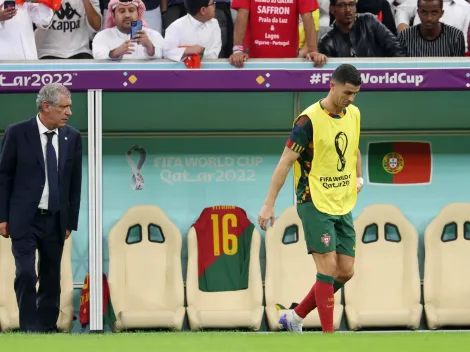Qatar 2022 represents excitement for a select group of National Teams that have already qualified for it; however, for most others, it means frustration and sadness for not having been able to achieve their goal of participating. The fact is that losing the privilege of playing a World Cup on the field is painful, but when it happens for reasons outside the field of play, it is even more painful.
In the history of the FIFA World Cup, there have been teams that have seen their aspirations to be among those chosen to play in the most prestigious tournament in the world of soccer split in two, and not precisely because of their performance in this sport, but because of issues that go beyond the fact of kicking a ball.
Thus, the recent detonation of the case of the Ecuador National Team, who was at risk of being left out of Qatar 2022 after the Chilean Football Federation filed a formal complaint with FIFA for an alleged irregularity by the Ecuadorians when they fielded Byron Castillo during the Conmebol Qualifiers. FIFA ruled on June 10, following an investigation by its disciplinary committee, that the complaint was inadmissible.
It would not be the first FIFA punishment to leave a national team out of the World Cup
In 117 years of existence of federated and organized soccer, governed by FIFA, there have been other cases in which various events that have occurred off the field have left several National Teams without the possibility of playing in a World Cup, due to the sanctions imposed on them.
The following is a recount of the most notorious cases of teams whose dreams of playing in the FIFA World Cup were cut short due to sanctions they received, a painful road that the Ecuador National Team is in danger of going down due to the investigation initiated by FIFA regarding Byron Castillo’s birth certificate.
Germany / Japan – Brazil 1950
In 92 years of history, the World Cup has only been suspended twice. This happened in the editions scheduled for 1942 and 1946, due to the fact that the Second World War was in progress during those years. FIFA decided to exclude Germany and Japan from any tournament organized by FIFA and this veto was not lifted until September 1950, so both National Teams missed the first World Cup organized by Brazil.

Germany won its first World Cup in 1954 after being banned from Brazil 1950. (dpa/picture alliance via Getty Images)
South Africa – Chile 1962 to Italy 1990
A very long veto that contributed to Bafana Bafana‘s debut in a World Cup until France 1998. It was not just one reason why South Africa was suspended by FIFA: the first cause was its Apartheid policy; then, the sanction was extended for the intention to field a team made up only of people from one ethnic group (either black or white) and finally the Soweto riots. All of these events were linked in subsequent years to leave South Africa without the possibility of attending 8 World Cups.

South Africa, during its first participation in a FIFA World Cup, in France 1998. (Franck Seguin/Corbis/VCG via Getty Images)
Mexico – Italy 1990
One of the darkest and most painful passages for Mexican soccer. The Concacaf qualifying tournament for the Under 20 World Cup in Saudi Arabia 1989 was being played when it was discovered that the Mexican Soccer Federation had registered players that were over the age limit. The FIFA sanction was not long in coming and banned El Tri from participating in the 1988 Seoul Olympics and the 1990 World Cup in Italy.

Mexico came back to a FIFA World Cup in USA 1994. (Ben Radford/ALLSPORT)
Libya – USA 1994
Officially, the sanction that deprived Libya of competing in the Qualifiers for USA 1994 came from FIFA, but this body only replicated the determination made by the UN, which sanctioned the African country in 1988 for the attack on a flight of one of the most important airlines in the United States at that time.

Libya National Team. (didi Wassim/SOPA Images/LightRocket via Getty Images)
Yugoslavia – USA 1994
Once again, a UN decision has influenced the sport. FIFA had no choice but to abide by the UN’s decision that no Yugoslavian team would be allowed to participate in international tournaments due to a conflict with Serbian citizens in Bosnia. Thus, there was no place for them not only in USA 1994, but also in the 1992 European Cup, where they were replaced by Denmark, the eventual champion of that tournament.

Yugoslavia in France 1998. (Shaun Botterill/Getty Images)
Rusia – Qatar 2022
The most recent case in which FIFA decided to ban a National Team from its tournaments. In a joint decision with UEFA, Russia, its national team and its clubs, was prevented from participating in all types of tournaments due to the ongoing conflict with Ukraine that erupted earlier this year, so Qatar 2022 will miss the host country of last year’s FIFA World Cup.

Russia will not be allowed to play in Qatar 2022. (Dmitriy Golubovich/Anadolu Agency via Getty Images)




